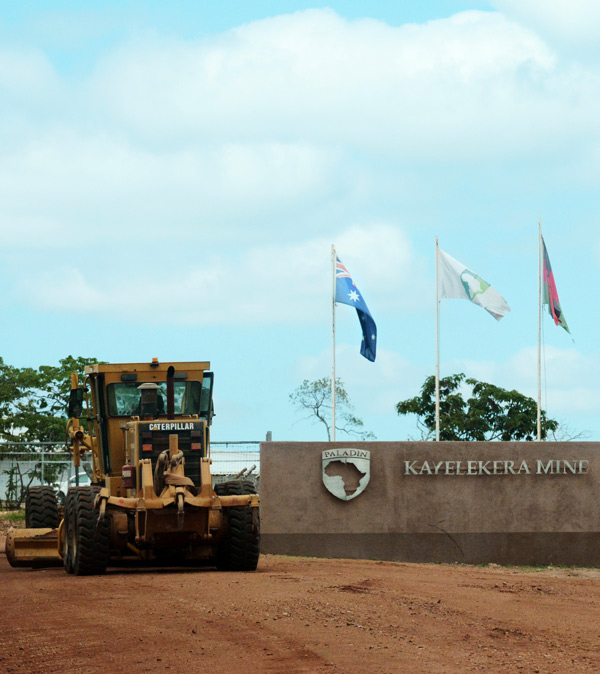By Collins Mtika
Malawi has finalized a process of going into another tax treaty with another tax haven country, Mauritius, despite the fact that such treaties have facilitated tax avoidance schemes by multinational corporations to reduce their tax liabilities in host countries, CIJM has established.
In theory, a tax treaty with Mauritius is supposed to help companies in both countries to avoid being taxed twice on the same economic activity but in signing a tax treaty with a low or no-tax country such as Mauritius, it means that some taxes may not be applied at all.
The Reserve Bank of Malawi (RBM) suspects that Malawi has lost $394.60 million (about K240 billion) through unauthorised externalisation of foreign exchange by some multinationals in the country through transfer pricing.
The amount is almost equivalent to what Malawi earns from tobacco, the country’s major foreign exchange earner estimated to account for about 60 percent. It is also about 17 percent of Malawi’s K1.4 trillion 2018/19 National Budget.
Malawi’s ratified tax treaties with developed countries contain provisions that are harmful to domestic resource mobilization hence crippling the country’s economy.
A CIJM investigation shows that presently, the negotiation process has been finalized and the tax treaty is in draft form awaiting signature (http://www.mra.mu/index.php/taxes-duties/double-taxation-agreements).

But in an interview, long serving former Minister of Finance said he is not aware of any tax treaty with Mauritius.
“I am not aware of any treaty with Mauritius,” Gondwe said.
However, sources within the Ministry of Finance told CIJM confirmed the under the table negotiations saying that a team of government officials have traversed to and from Mauritius for two years.
The Opposition Malawi Congress Party (MCP), says the signing of the treaty clearly shows that there are some crooked people and individuals that would like to repatriate their taxes so that they can benefit from such a treaty.
“Why is it that the Malawi government wants to sign a Treaty with Mauritius now when the treaty has been idle for more than 20 years? What business is there in a tax haven country? “the party queried.
CIJM understands that some companies have already set up subsidiary companies in Mauritius to begin to take advantage of the tax treaty between Mauritius and Malawi by channeling revenue through the island haven.
One such company is First Merchant Bank, now renamed First Capital Bank – (http://www.faceofmalawi.com/2017/06/fmb-head-office-to-move-to-mauritius/).
Similarly, the tax agreement to be signed between Mauritius and Malawi is likely help such companies slash tax rates to be paid in Malawi.
Action Aid dataset on tax treaties shows a general pattern that Mauritius tax treaties are very restrictive such that they remove most taxing rights of the other treaty partner country.
Tax treaties with tax havens such as Mauritius come at particularly high cost where money meant to remain in the country is often routed through tax havens as part of tax avoidance strategies that rely on tax cuts contained in treaties signed by those havens.
While these are the few documented cases, CIJM is aware that many international corporations are taking advantage of the Mauritius tax haven as well as its tax treaties and weak provisions in most tax agreements to avoid paying their taxes.
It is often said that tax treaties will stimulate increased foreign investment and will therefore be a net positive to Malawi’s economy.
However, the available evidence suggests that any benefits that tax treaties might bring cannot be guaranteed.

Taxation treaties Malawi has signed with other countries over the last 50 years are costing the country billions of kwacha since they have opened up opportunities for multinational corporations to reduce their tax liability through tax avoidance.
Where Malawi has a tax treaty with a ‘conduit jurisdiction’ like the Netherlands, Ireland or Mauritius, she is making herself vulnerable to multinationals routing payments through multiple countries with favorable tax treaties in order to avoid or reduce tax on cross-border transfers.
Action Aid Malawi has cautioned about the tax treaty between Malawi and Mauritius by stating that ‘some of the most important ways of stripping profits from African countries are done through offshore jurisdictions, including Mauritius’.
“Every dollar lost to tax havens is a dollar that could have been invested in public services – to pay doctors and teachers, to deliver clean water or affordable housing or transportation. Government should therefore not sign the tax treaty with Mauritius and any other tax haven,” the organisations warns.
Taxation treaties Malawi signed with other countries over the last 50 years are costing the country billions of kwacha since they are a key loopholes multinationals use to dodge tax.
In the case of Paladin Africa, if the MK100 billion had been spent in Malawi, the money lost it could have paid for 1,375,000 annual HIV/AIDS treatments; or 27,000 annual Doctors’ salaries; or as many as 100,000 annual Teachers’ salaries.
But during its seven years of operation, Paladin Africa, the Australian mining company that operated the uranium mine at Kayelekera, paid USD135 million in “management fees” to a Dutch affiliate which was a letterbox company with no staff, according to findings by Action Aid, this amount loosely translates to almost MK100 billion.
In another Action Aid report, which CIJM has seen, tax treaties are skewed heavily in favor of rich countries, with almost zero benefit accruing to poor countries like Malawi.
The report, which analyses the impact of tax treaties globally, notes that Bangladesh is losing approximately US $85 million every year from just one clause in its tax treaties that severely restricts its right to tax dividends. With an annual total health expenditure of approximately US$25 per capita, remedying this alone could pay for health services for 3.4 million people.
On a global scale, just two rules in tax treaties – dividend and interest payment rules – cost developing countries billions of dollars each year. Tax treaties also cause many other losses – such as lost profit tax contributions and lost tax on capital gains, royalties and services fees – but the size of these losses is still unknown.
As was the case with Paladin Africa in Malawi, management fees, alongside royalty payments and service fees allowed the company to minimize its profits, and therefore its tax liability.
Similarly, the UK’s treaty with Malawi bans Malawi from taxing investor income
(I.e. Dividends) being sent to the up, but the UK regularly doesn’t choose to use its right to tax that income either.
The report notes: “not paying tax twice on the same income is a reasonable asks.
But tax treaties that contribute to tax not being paid anywhere are unsustainable, especially when income is made in some of the world’s poorest countries. Somebody else has to pick up the bill.”

